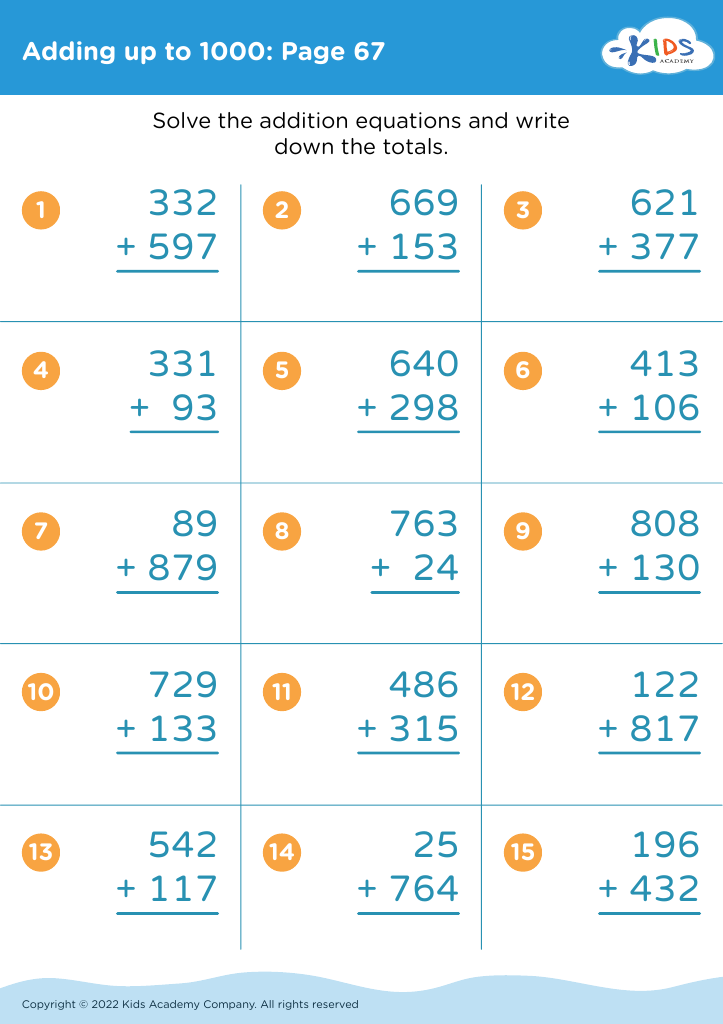Understanding multiplication Adding up to 1000 Worksheets for Ages 3-9
4 filtered results
-
From - To
Discover our engaging "Understanding Multiplication Adding Up to 1000 Worksheets" designed for children ages 3-9! These dynamic resources introduce young learners to multiplication concepts through fun, interactive exercises that promote critical thinking and enhance math skills. As kids explore different problems, they build a solid foundation in multiplication while learning to add up to 1000 confidently. Perfect for home or classroom use, our worksheets are tailored to meet the developmental needs of early learners. Try our captivating worksheets today to help your child unlock a greater understanding of multiplication and boost their confidence in math!
Understanding multiplication is crucial for children ages 3-9, as it serves as a foundational skill for future learning in mathematics and everyday life. At this young age, cognitive development is rapid, and mastering multiplication helps to solidify number sense, fostering mathematical fluency.
Parents and teachers should care about this concept for several reasons. Firstly, early exposure to multiplication sets the stage for more complex operations, such as division and fractions, which children will encounter later in their education. Additionally, these foundational skills promote problem-solving abilities and critical thinking, encouraging children to approach challenges with confidence.
Moreover, learning multiplication enhances a child's understanding of patterns and relationships within numbers, which can improve overall mathematical skills. By understanding the idea of adding up to 1000, children can grasp larger concepts and see the connections between different mathematical operations, helping them to visualize and solve real-world problems.
Furthermore, a solid grasp of multiplication boosts children's engagement and interest in math. When children understand these concepts at an early age, they are more likely to excel academically, making math a subject they enjoy rather than fear. Involving parents and teachers creates a supportive environment that fosters a positive attitude towards math learning, setting children on a successful educational path.















